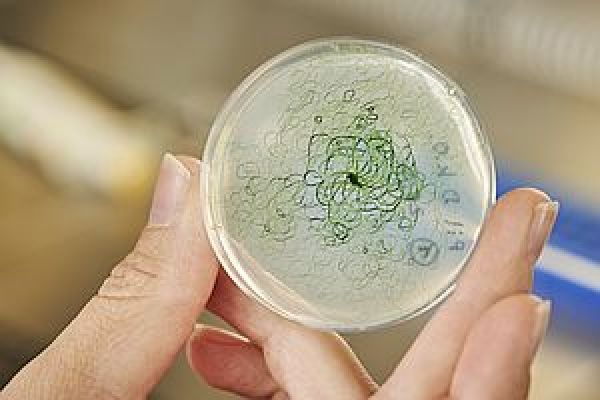Cyanobacteria hardly need any nutrients and use the energy of sunlight. Bathers are familiar with these microorganisms – often incorrectly called “blue-green algae” – as they often occur in waters. A group of researchers at the Karlsruhe Institute of Technology (KIT) has discovered that the multicellular species Phormidium lacuna can be genetically modified by natural transformation and could thus produce substances such as ethanol or hydrogen. They present their results in the online scientific journal PLOS ONE (DOI: 10.1371/journal.pone. 0234440).
During transformation, a cell is genetically modified by adding genetic material (DNA). This process, which occurs frequently in nature, can be used to introduce specific DNA into a cell and endow it with a certain property. “Natural transformation means that DNA is taken up by cells without any further aids,” says Professor Tilman Lamparter, professor at the Botanical Institute – General Botany research field at the KIT. The procedure is simple: It works without conjugation – the connection with another cell – and without electroperforation – which would make the cell wall permeable. Since natural transformation has so far only been successful in unicellular cyanobacteria, it was assumed that it was an exclusive feature of unicellular species. The findings of the KIT research group show that the natural competence to take up extracellular DNA occurs more frequently in cyanobacteria than previously thought. In the online scientific publication PLOS ONE (Public Library of Science), they report for the first time on gene transfer for the Phormidium lacuna genus and on the natural transformation of a multicellular, filamentous cyanobacterium.
Read more at Karlsruher Institut Für Technologie (KIT)
Photo: Cyanobacteria producing ethanol or hydrogen – natural gene transfer could make this possible. CREDIT: Amadeus Bramsiepe, KIT


